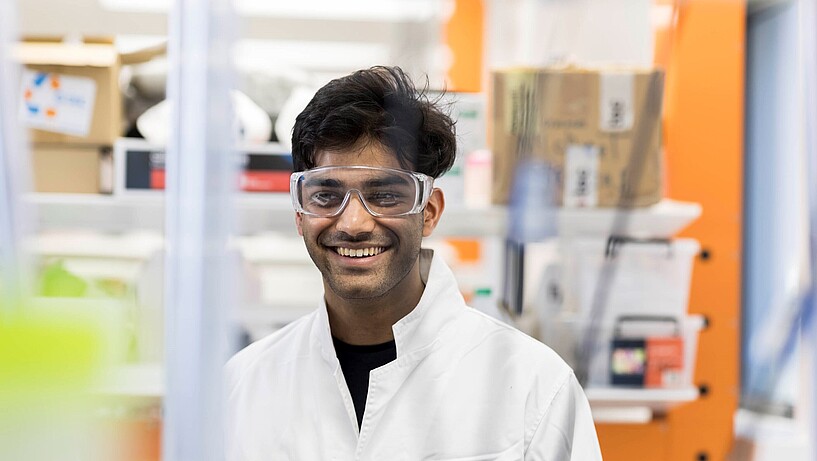‘Hi I’m Dhyey, a PhD student in Biomedical Engineering at UNSW, Sydney and an alumnus of the HAW Hamburg International Exchange programme. It’s very difficult to reflect on my time and pinpoint the key moments or epiphanies that contributed to my eventual decision to pursue a PhD, but I think I can describe the overall sentiment.
As a student of Electrical Engineering (Honours)/Masters in Biomedical Engineering, the first couple of years of my five-year double degree felt laborious and draining. If I am being honest, I felt like a passenger, not really in control of how to manage the heavy workload and the banal manner in which courses were structured and examined. The favourable traits of lateral thinking, time management and problem-solving that are so akin to students of engineering were being developed in me, but only for the purpose of ‘getting through’ the semesters.
Now, I am not exactly sure of the precise turning point, but I can say with surety that it had something to do with going on exchange for a year to Hamburg, Germany. I fell in love with and in Hamburg! The independence, the travelling and the unique manner in which engineering is taught at HAW Hamburg felt like a necessary hard reset in my life. This eye-opening experience was compounded with the incredible research team I completed my Honours and Masters’ thesis with when I returned to Sydney.
And it was in this period that I was instilled with this ‘big picture’ philosophy. I use that term a lot nowadays, to try to contextualise my action with some of sort of grander purpose. I believe this newfound sentiment was what eventually drove me to pursue a PhD. I wanted to keep developing and growing and I felt that in academia we are students for knowledge. While I have had a taste of industry, which definitely has its perks, I found myself again aimless and not connected with the work. In contrast, the dynamic nature of research for me is much more fulfilling and satisfying.
I am really excited by the prospects of blending the fields of electrical and biomedical engineering in my PhD. We are developing highly biocompatible, polymeric and conducive implants for electrical signal capturing and diagnosis. Specifically, my work will have a direct impact on understanding, assessing, and mitigating implant degradation, local tissue necrosis and potential systemic toxicity due to particulate leaching from neural prosthetic devices in long-term patients such as those with cochlear implants. My passion for this area of research derives from having a concrete understanding of the significant impact it makes on the lives of users. I think engineers and researchers can easily get consumed in the technical minutiae of their research topic, but I try to envision the big picture and the smiles of those patients upon receiving these life-changing implants.’

